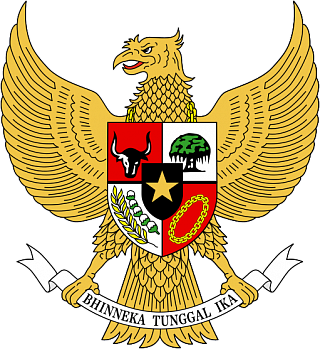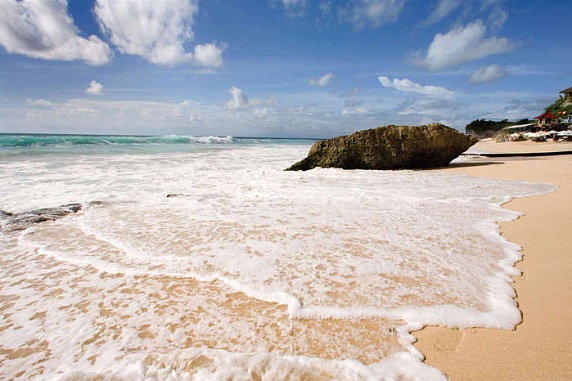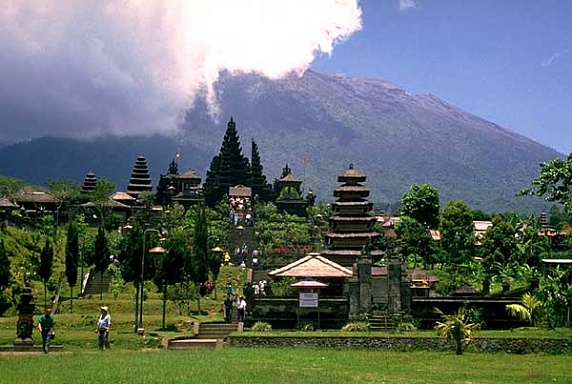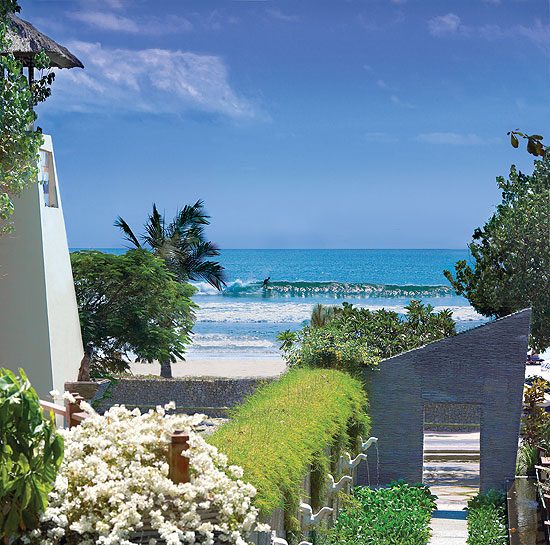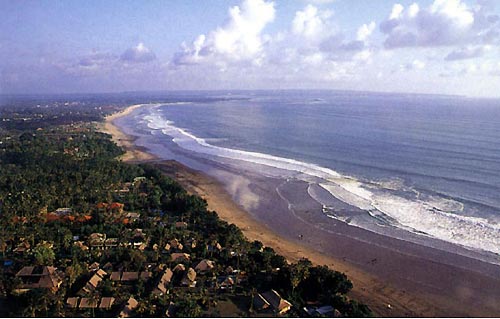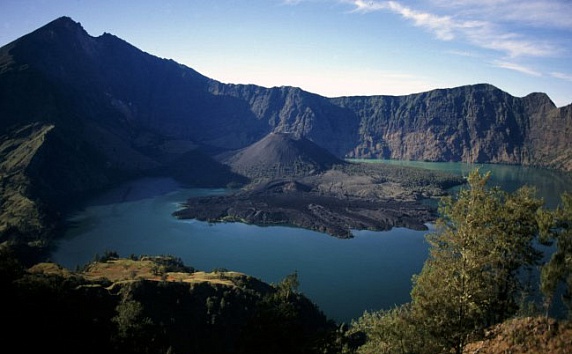 Республика Индонезия
Республика Индонезия
Foreign Minister Sergey Lavrov’s interview with Indonesian newspaper Rakyat Merdeka, Moscow, July 6, 2021
Question: During your visit to Jakarta, you will meet with your counterpart, Indonesian Foreign Minister Retno Marsudi. Can you tell us about the subjects to be discussed? Are there specific areas of cooperation you would like to promote during your visit?
Sergey Lavrov: I maintain regular contact with my colleague and good friend Retno Marsudi. The upcoming talks in Jakarta will logically continue our meetings in Indonesia in 2017 and in Moscow in 2018. We plan to discuss the entire spectrum of bilateral, international and regional issues. We will also sign another plan of consultations between our foreign ministries for 2021-2023.
Since the time of its independence, Indonesia has traditionally been one of Russia’s leading partners in the Asia-Pacific Region. Last year, we celebrated the 70th anniversary of our diplomatic relations. We are steadily developing our political dialogue and our contacts in the security, trade, economic and humanitarian areas. We also promote cooperation in multilateral formats, including the UN, in ASEAN-centric associations, the G20, APEC, and ASEM, to name a few. In fact, our relations have reached the strategic partnership level.
We will focus on enhancing trade, economic and investment cooperation, and on the prospects for diversifying the structure of mutual trade, in part, by increasing the share of high technologies. Our areas of priority cooperation include energy, the oil-and-gas industry, transport infrastructure, aircraft manufacturing, the auto industry, computer and telecommunications technologies, and the halal food industry. We plan to discuss ways of strengthening our ties in education, science, and culture, as well as between our regions.
Naturally, we intend to discuss strategies to fight the COVID-19 pandemic. Russia is ready for active cooperation with Indonesia in this respect as well.
Question: Geographically, ASEAN is far from Russia. What compels you to seek cooperation with ASEAN? How important is this association for Russia? What has changed in Russian-ASEAN cooperation after the 30th anniversary? What difficulties have come up in this cooperation over these years?
SergeyLavrov: Indeed, it is hard to describe Southeast Asia as Russia’s next-door neighbor. But people in Indonesia say with good reason, “Far from the eyes, but close to the heart.” Moreover, modern technology makes geographical distances quite relative.
Developing ties with ASEAN, which turns 30 this year, is one of our foreign policy priorities in the Asia-Pacific Region. We consistently proceed from the assumption that the association has been and remains the centre of regional integration processes and has formed a well-balanced and transparent system of interstate relations. This system rests on universally recognised standards of international law and mutual regard for the lawful interests of all states.
In this connection, Russia consistently supports the strengthening of ASEAN’s central role in the Asia-Pacific Region. We support the “Ten” at international venues and take an active part in the activities of ASEAN-centric associations, such as the East Asia Summit, the ASEAN Regional Security Forum, and the ASEAN Defence Ministers’ Meeting Plus with the Dialogue Partners. We are convinced of the need to maintain the principles of equality and consensus in this work. These principles make it possible to hear the voice of each participant and to support an atmosphere of constructive collaboration.
In recent years, Russia and ASEAN have created a strong legal infrastructure and a ramified, multi-level structure of contacts. Our leaders meet regularly, and our foreign and economic ministers meet at least once a year. We are intensively developing cooperation across the board – in politics and security, trade, the economy and the socio-cultural sphere. This allowed us to raise Russia-ASEAN dialogue to the strategic partnership level at the summit in Singapore in 2018.
Unfortunately, the potential of economic cooperation is far from fully realised. There are substantial reserves in this regard. The coronavirus pandemic and related restrictions have adversely affected our trade with the Ten. However, a growth trend has reappeared this year. We believe that promotion of cooperation with the Eurasian Economic Union will allow us to make it more dynamic. Two ASEAN members – Vietnam and Singapore – have already signed free trade agreements with the EAEU. Indonesia has started working on this as well.
Over two million Russian tourists visited Southeast Asia before the pandemic. Yet, we still do not know enough about each other. The development of humanitarian ties is designed to fill in this gap. The ASEAN Centre has been established in Moscow for this purpose as well as a network of Russia-ASEAN research centres. Russia-ASEAN youth summits are also held in this context. The activities of the Russia-ASEAN Business Council facilitate the expansion of contacts between our entrepreneurs.
We try to resolve all problems in the spirit of friendship, mutual trust and constructive engagement that is traditionally inherent in Russia-ASEAN dialogue. We will hold a special Russia-ASEAN ministerial conference devoted to the anniversary of our relations with our Indonesian partners in Jakarta. We hope this will make an important contribution to the expansion of our dialogue.
Question: Recently, Russian President Vladimir Putin and US President Joe Biden held one-on-one talks in Geneva. The two leaders seemed to know each other. Do you think this is a sign of better relations between Russia and the United States in the future? In our opinion, the current relations between Russia and the United Sates are more like relations between the main characters of the animated cartoon “Tom and Jerry”...
Sergey Lavrov: I wonder which of these two characters you assign to our country.
Joking aside, the Russian-American summit, in our view, was held in a frank and businesslike atmosphere. The two leaders had an in-depth discussion of the status of bilateral relations and exchanged views on strategic stability issues, arms control and regional conflicts.
Needless to say, we harbour no illusions, either new or old, as President Vladimir Putin said at his news conference following the meeting with his American counterpart. At the same time, we are satisfied that after stating their positions of principle, the parties demonstrated a willingness to understand each other. What can be described as the main result is a step forward, modest as it is, towards restoring normalcy between our countries, which, as we strongly believe, cannot be achieved without mutual respect and regard for each other’s interests.
On the plus side, there are agreements on both countries’ ambassadors returning to Moscow and Washington, as well as on launching interagency strategic stability consultations. Importantly, the intention to start a focused and vigorous dialogue in this area has been committed to paper. As you may know, the two presidents have approved a joint statement to this effect.
Cooperation on cyber security is expected to begin, which means putting in place a collaborative effort in heading off real common challenges.
The Russian leader said clearly, including in public, that results in any area could only be achieved if the two countries found a mutually acceptable balance of interests based strictly on parity. No objections were expressed during the talks. However, almost as soon as they were over, US officials, including participants in the Geneva meeting, redoubled their moralising rage, saying they told Moscow what was what, sent it a clear warning, outlined US demands, etc. Incidentally, all these “warnings” were later followed with threats: If within a few months Russia failed to accept the “rules of the game” that were presented to it in Geneva, it would be subjected to more pressure.
Attempts to engage in a dialogue with us from the position of strength are doomed to failure from the start: we will retaliate strongly and resolutely against any unfriendly moves. Cooperation should be honest, if Washington really wants stable and predictable relations, to quote them say so.
Question: We know from media reports that the Russian Government is supporting Myanmar’s military junta, whereas ASEAN nations and many other countries have criticised and condemned its activities. Why is the Russian Government supporting the military?
Sergey Lavrov: The media outlets, which you have not named, are misinterpreting the approaches of both Russia and our ASEAN friends to the developments in Myanmar. Russia is providing implicit support to ASEAN’s guiding role in Myanmar.
The Russian position is consonant with the provisions of the Five-Point Consensus, which was adopted through the collective efforts of our ASEAN partners. We wholeheartedly support the provisions regarding the cessation of violence and the exercise of utmost restraint by all the conflicting parties and the development of a constructive dialogue among them aimed at stabilisation and civil peace.
The positions of Russia and ASEAN also coincide when it comes to the rejection of unilateral sanctions, the rhetoric of threats and any attempts to interfere in Myanmar’s internal affairs. We share the general view on the destructive effects of such policies, which can only increasingly polarise society and aggravate internal differences. We have a negative attitude to the continued attempts made by some states to use multilateral venues, including the UN, to incite confrontation during the discussions of the developments in Myanmar.
We consider it important that numerous contacts, including in-person meetings held within the ASEAN framework were attended by official Myanmar representatives. Talks have been held in Naypyidaw under Brunei’s chairmanship and further steps are being discussed to ensure the gradual implementation of the Five-Point Consensus. We believe that the expected appointment of ASEAN’s special envoy for Myanmar will give an additional momentum to our joint efforts to settle the situation in that country.

